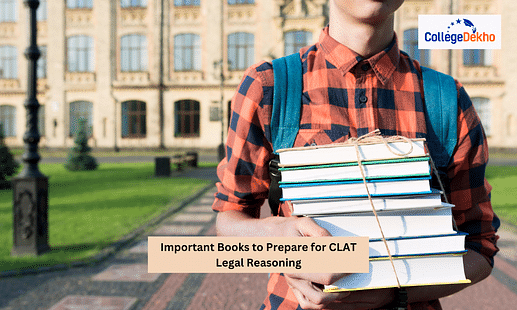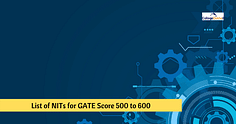
CLAT legal reasoning preparation books are important books that help you build a good legal concept foundation. Pearson’s book “Legal Awareness and Legal Reasoning”, as well as ‘Important Judgments That Transformed India’, by Alex Andrews George are essential reading books for understanding fundamental legal principles. It brings to light landmark cases and the implications, which will be extremely instrumental for the upcoming Common Law Admission Test.
You may also wish to look at "The Pearson Guide to the CLAT" by Harsh Gagrani. The exam structure is widely covered by this book, aiding you in learning what kind of questions you'll encounter in the exam. LST’s Legal Reasoning Module is another excellent add on for CLAT exam aspirants, which is also a practical resource, consisting of exercises and mock tests.
The way to master legal reasoning is by learning through regular practice. To better understand the exam pattern, you must deal with the practise questions and CLAT previous year question papers. It will help you improve your analytical skills and help you to better use legal principles in a variety of situations/ problems.
Moreover, it is equally important to catch up with current affairs. Reading The Hindu will help you to be aware about important Judgments and latest legal events. Often, these questions can be applied to your knowledge directly in the exam.
Also Read:
CLAT Toppers Preparation Tips
List of Important CLAT Legal Reasoning Preparation Books 2025-26
It is imperative to choose good CLAT legal reasoning books for the exam to get your concepts cleared and be able to score high in this section. Such books not only clarify the concepts in an easy way but also provide ample mock tests and sample papers for candidates to solve and assess their preparation level along with their strengths and weaknesses. Here are some recommended books to Prepare for CLAT Legal Reasoning 2025:Book | Author |
|---|---|
Legal Awareness and Legal Reasoning | Pearson |
Legal Aptitude and Legal Reasoning | AP Bhardwaj |
Objective Legal Aptitude | R.S. Aggarwal |
Legal Awareness and Legal Reasoning | Universal's CLAT Guide |
Important Judgements That Transformed India | Alex Andrews George |
The Pearson Guide to Legal Aptitude and Legal Reasoning | Nripjit Kaur |
“Important Judgements That Transformed India” by Alex Andrews George and “The Pearson Guide to Legal Aptitude and Legal Reasoning” Nripjit Kaur are informative about case law changes in the Indian legal system.
What to Study for CLAT Legal Reasoning 2025?
The Legal Reasoning section of CLAT 2025 will contain around 30-32 questions in the form of comprehension passages of around 450 words focusing on legal aspects and will include questions that will check the general understanding and, therefore, application of legal concepts and principles.To successfully complete this section, candidates are recommended to understand static and current laws, legal terms, and definitions. Preparation should also involve reading about current legal and moral issues because such knowledge will be vital in answering hypothetical scenarios expected in the exam. We have compiled below a list of all the crucial topics that you must cover during the CLAT legal reasoning preparation:
Important Topics for CLAT Legal Reasoning 2025 | Details |
|---|---|
Constitutional Law | - Brief History of the Constitution of India - Important amendments and judgments - Fundamental Rights and Duties to the Indian Constitution: Historical Perspective |
Law of Contracts | - Elements of a valid contract - Contract Breach and Remedies - Specific performance and voidable contracts |
Law of Torts | - Negligence and liability - Defences in tort law - Landmark tort cases |
Criminal Law | - Crimes of the IPC which are under the category of cognizable offences - Punishments and defences - Recent changes in legislation and their potential consequences |
Family Law | - Laws relating to marriage in India - Issues related to divorce, custody and maintenance - Adoption and inheritance laws |
Public International Law | - Treaties and conventions - Sovereignty and jurisdiction - International human rights law |
Intellectual Property Rights | - Types of IP (patents, copyrights, trademarks) - Enforcement and infringement issues - Recent case laws on IP |
Legal Maxims | - Commonly used legal maxims - Use in case analysis and legal argumentation |
Contemporary Legal Issues | - Current legal issues affecting society (ex: digital privacy, environmental law) - Recent landmark judgments |
Legal Terms and Definitions | - Understanding of some basic yet important legal terms and ideas - It is important to know how they are used in different settings. |
Type of Questions in CLAT Legal Reasoning 2025
The exam’s Legal Reasoning section contains questions about legal scenarios, general legal awareness, and reasoning. Here are some types of questions that candidates can expect in the CLAT legal reasoning section:- True or False questions followed by assertion and Reasoning-based questions to determine if they can distinguish correct assertions and reasons.
- Principle-based questions help to find out whether they can adapt the legal principles in question to the specific circumstances.
- Single Principle: In this case, candidates are given one principle and 1 or more questions arising from the said principle.
- Multiple Principles: In this case, 2 principles will be expected, which means that a candidate will be required to answer one or more questions based on the principles.
- Cluster Questions: These legal reasoning questions will be based on 4 to 5 principles.
- Factual questions test their capacity to select the right fact out of the available choices.
- Legal GK questions check their knowledge of events in the legal sphere and legal jargon.
How to Study for CLAT Legal Reasoning 2025?
Here are some important points related to the preparation of CLAT legal reasoning 2025:- Read and understand legal concepts and principles from other legal sources including texts, journals, and legal databases.
- Attempting certain years’ question papers boosts the candidate’s understanding of the examination pattern and the types of questions asked in the CLAT Legal Reasoning section.
- You should note that poor vocabulary makes it extremely difficult to understand such legal passages.
- A good CLAT mock test series helps the candidates identify how prepared they are and where they stand in terms of performance in the Legal Reasoning section.
- Understand how to distribute the time properly during the test. Take your time to answer each question and ensure you leave some time for revision.
- Originality, logic and reason are best understood and applied in legal practice when they are consistent. Practice makes one perfect; thus if one continues to practise, they will gain plenty of insight into legal principles as well as develop good problem-solving skills.
- Study static and current matters of the world, the main ones being from the last ten months.
- Study important case laws and decisions from the previous year and earlier.
- Monsoon and winter sessions of Parliament had new changes and enactments, so do make a note of them.
- Read about LGBTQ+ issues, the death penalty, and other issues of the present time.
- Read legal and technical terms, foreign legal words and phrases, proverbs, legal maxims, etc.
Tips To Solve CLAT Legal Reasoning Questions
Here are some of the crucial tips to effectively solve CLAT legal reasoning questions during the exam:- First, one has to read the passage well. Identify its main idea or principle while reading the passage and extract crucial information that will help in answering the questions.
- Some of the questions posed will be basic, and they will require the application of legal rationale. Simple questions will ask for the best conclusion regarding the legal matter.
- CLAT questions related to legal reasoning are of hypothetical situations and choices based on principles stated in the passage.
- Read each question carefully. Employ the strategy of examining its connection with the facts in the passage or different facts.
- Determine the principles and facts in the passage. Subdivide what you’d otherwise consider as large principles or truths into more manageable subtopics, which will assist in answering questions.
- Some passages may contain more than a single principle. Determine which of the two is used to answer the question that is posed.
- Do not over-interpret the passage and question; try to grasp them in a literal sense. Do not simply depend on your knowledge; the CLAT exam doesn’t presuppose you as an experienced lawyer.
Also Read: Best Study Plan for CLAT 2025
CLAT legal reasoning preparation books are important for you to get hold of the important legal concepts and be able to apply them in various situation-based questions during the exam and even in real life too. Understanding what books to select can make a huge difference in your performance. Books like 'Legal Awareness and Legal Reasoning by Pearson gives a solid ground to the legal concepts and legal reasoning skills. This book is a good reading if you want to understand the basic principles behind legal reasoning.
Another good read is R.S. Aggarwal’s “Objective Legal Aptitude.” The book features a number of practice questions you can use to work on your problem solving skills. If you apply what you've learned, then engaging with these questions will help you. Furthermore, “Important Judgments That Transformed India,” by Alex Andrews George will inform you about important cases that have transformed India, and thus will help you understand how the practise of law works.
The other book that you should also take into account is 'The Pearson Guide to the CLAT' by Harsh Gagrani, touted for having comprehensive subject coverage. The book explains complex topics in great detail along with practice exercises. Additionally, the Legal Reasoning Module of LST is designed exclusively for CLAT preparation, and is thereby worth including as part of your study material.
For a successful preparation, combine these books with current affairs resources such as The Hindu or The Times of India. It will help you to become enriched in general knowledge about recent legal developments.
For more latest updates on CLAT Legal Reasoning 2025, stay tuned to CollegeDekho . Also, for any query head to our Q&A Zone or fill out our Common Application Form .
















Similar Articles
Mistakes to Avoid while Applying for AILET 2025
What is the Required CLAT 2025 Rank for NLSIU Bangalore Admission?
What is the Required CLAT 2025 Rank for NALSAR Hyderabad Admission?
What is the Required CLAT 2025 Rank for NLIU Bhopal Admission?
What is the Required CLAT 2025 Rank for NLU Jodhpur Admission?
What is the Required CLAT 2025 Rank for WBNUJS Kolkata Admission?